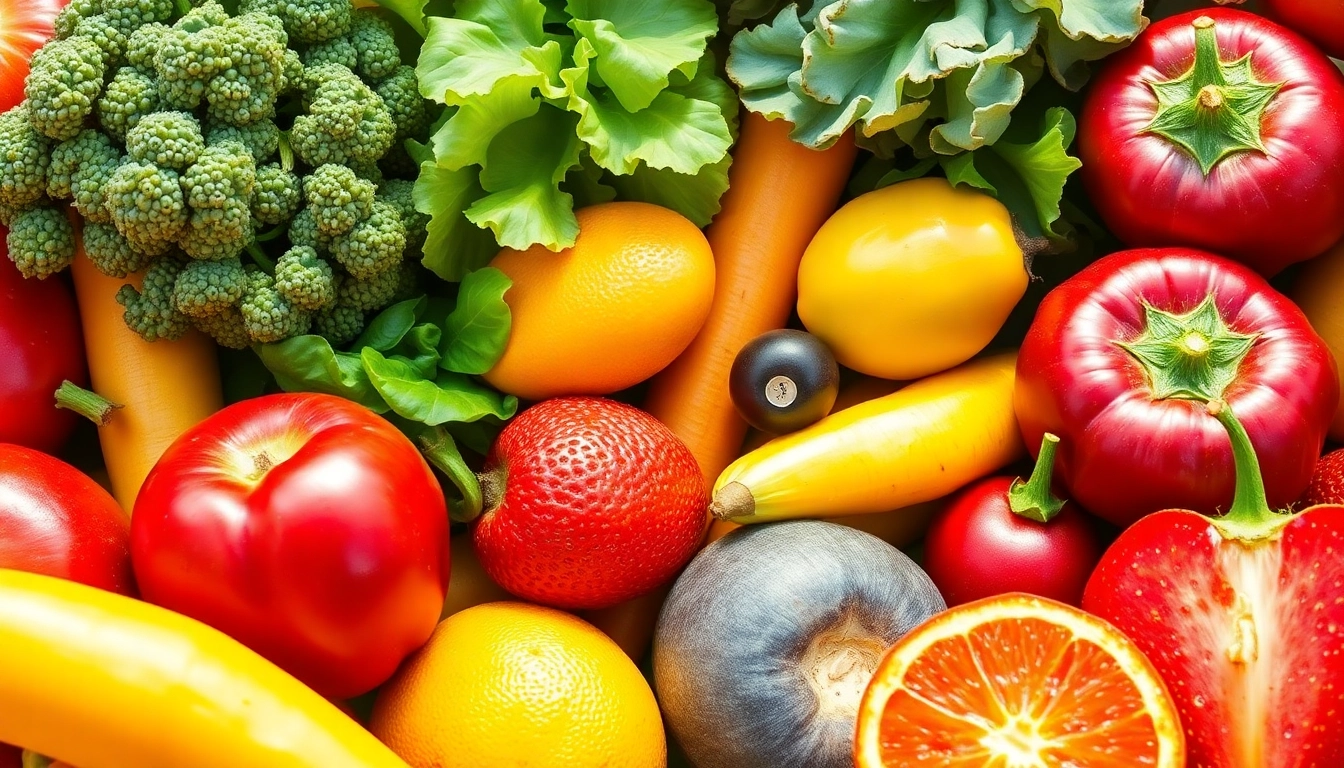Boost Your Health: The Essential Guide to Antioxidants and Their Benefits
Understanding Antioxidants
What Are Antioxidants?
Antioxidants are natural or man-made molecules that help prevent or slow damage to cells caused by free radicals—unstable atoms that can lead to cell damage and contribute to various diseases. They are crucial to our overall health and are commonly found in a variety of foods, particularly fruits and vegetables. Antioxidants play a vital role in our body’s defense against oxidative stress, which can lead to chronic health issues such as cancer, diabetes, and heart disease.
Types of Antioxidants
Antioxidants can be classified into several categories based on their source and function:
- Enzymatic Antioxidants: These are enzymes that help neutralize free radicals. Examples include superoxide dismutase (SOD), catalase, and glutathione peroxidase.
- Non-Enzymatic Antioxidants: These include vitamins and minerals that are obtained from food. Major non-enzymatic antioxidants include:
- Vitamin C: Found in high concentrations in fruits and vegetables like oranges, strawberries, and bell peppers.
- Vitamin E: Found in nuts, seeds, and green leafy vegetables.
- Beta-carotene: A plant pigment found in carrots, sweet potatoes, and spinach.
- Selenium: An essential mineral found in Brazil nuts, fish, and meats.
The Role of Antioxidants in the Body
The primary function of antioxidants is to combat oxidative stress caused by free radicals. This process helps to reduce inflammation, prevent cellular damage, and promote overall cellular repair and maintenance. Additionally, antioxidants can also enhance the immune response, which is crucial for preventing infections and diseases. Furthermore, they support healthy aging by protecting cells from the cumulative strain of oxidative damage over time.
Benefits of Antioxidants
How Antioxidants Protect Your Cells
Antioxidants neutralize free radicals in the body, effectively stopping them from causing damage to cell membranes, DNA, and proteins. By donating an electron to free radicals, they stabilize these harmful molecules and prevent them from causing further oxidative stress. This protective action is crucial in reducing the risk for diseases that stem from cellular damage, including conditions such as Alzheimer’s, cardiovascular diseases, and cancer.
Antioxidants and Disease Prevention
Numerous studies suggest that a diet rich in antioxidants can significantly lower the risk of chronic diseases. For instance, the consumption of fruits and vegetables—natural sources of antioxidants—has been linked to a reduced risk of heart disease. Moreover, foods high in antioxidants like berries, nuts, and dark chocolate have shown promise in lowering blood pressure, reducing inflammation, and improving overall heart health. For cancer prevention, antioxidants may help reduce the development of cancer cells by mitigating oxidative damage to DNA.
Skin Health and Antioxidants
Antioxidants also play a key role in maintaining skin health. They mitigate damage from ultraviolet (UV) radiation, pollution, and other environmental stressors. Common topical antioxidants, such as Vitamin C and E, are known for their ability to improve skin texture, reduce the appearance of fine lines, and combat signs of aging. They achieve this by enhancing the skin’s natural repair processes and reducing inflammation caused by oxidative stress.
Incorporating Antioxidants into Your Diet
Top Antioxidant-Rich Foods
To reap the benefits of antioxidants, it is beneficial to incorporate a wide variety of antioxidant-rich foods into your diet. Some top foods known for their high antioxidant content include:
- Berries: Blueberries, strawberries, and blackberries are rich in vitamins and antioxidants such as anthocyanins.
- Dark Chocolate: Contains flavonoids and is known to have a high ORAC (Oxygen Radical Absorbance Capacity) value.
- Artichokes: A fantastic source of antioxidants like chlorogenic acid.
- Green Tea: Rich in catechins, which can help reduce inflammation and prevent cell damage.
- Nuts and Seeds: Particularly almonds and sunflower seeds, are abundant in vitamin E and selenium.
Creative Ways to Add Antioxidants to Meals
There are numerous ways to creatively add antioxidants to your daily meals:
- Smoothies: Blend a variety of berries with spinach, nut butter, and green tea for a nutrient-packed breakfast or snack.
- Salads: Incorporate a rainbow of vegetables such as tomatoes, bell peppers, and carrots to enhance antioxidant intake.
- Snacks: Replace junk food with antioxidant-rich options like dark chocolate, nuts, or air-popped popcorn seasoned with herbs.
- Soups and Stews: Use a mix of lentils, beans, and colorful vegetables to create hearty and healthy meals.
Antioxidant Supplements: Pros and Cons
While whole foods are the best source of antioxidants, many people consider supplements for convenience. However, it’s essential to weigh the pros and cons:
- Pros:
- Convenience for those unable to get enough antioxidants from their diet.
- Targeted formulations can address specific health concerns.
- Some research suggests they can help if there’s a deficiency.
- Cons:
- High doses may lead to toxicity; for instance, too much Vitamin E can increase the risk of bleeding.
- Antioxidant supplements have not consistently shown the same benefits as those obtained from food sources.
- Over-reliance on supplements can lead to neglecting a balanced diet.
Measuring Antioxidant Intake
Understanding ORAC Values
ORAC, or Oxygen Radical Absorbance Capacity, is a method of measuring the antioxidant capacity of different foods. Foods with higher ORAC values are thought to have a greater ability to neutralize free radicals. For example, high ORAC foods include wild blueberries, dark chocolate, and pecans. While ORAC testing can be informative, it’s important to recognize that the bioavailability and synergistic effects of these compounds also play a vital role in their effectiveness.
Daily Recommended Intake of Antioxidants
Unlike vitamins or minerals, there is no established daily recommended intake for antioxidants. However, it’s generally suggested that individuals aim to consume a variety of antioxidant-rich foods daily. The American Heart Association recommends at least 4.5 cups of fruits and vegetables per day, which may help ensure adequate antioxidant intake and promote overall health.
Assessing Your Antioxidant Levels
While there is no straightforward test to evaluate antioxidant levels in the body, certain indicators may help gauge your overall status. Regular health screenings focusing on inflammation markers, oxidative stress indicators, and general nutritional evaluations can provide insights into your antioxidant status. Maintaining a balanced diet rich in whole foods is the most reliable approach to supporting your body’s antioxidant needs.
Future of Antioxidants in Health
Research Trends on Antioxidants
Current research trends are focusing on the efficacy of antioxidants in treating and preventing chronic diseases. There is increasing interest in understanding the specific roles of different antioxidants in various biological processes and how they may be used therapeutically. New studies are also investigating the effects of antioxidants on aging and cognitive health, highlighting a growing intersection between gut microbiota, diet, and antioxidant levels.
Innovations in Antioxidant Products
The market for antioxidant-rich products is expanding rapidly, leading to innovations such as antioxidant-enriched beverages, enhanced supplements, and unique food products designed to boost overall health. Research into plant-based antioxidants is propelling new discoveries, and bioengineering may allow for the development of foods with even higher antioxidant levels.
Myths and Facts About Antioxidants
There are several myths surrounding antioxidants that can lead to misunderstandings. One common myth is that more antioxidants are always better; however, excessive antioxidant consumption can be harmful, leading to imbalances. Another misconception is that antioxidant supplements can replace a healthy diet, when in reality, they should be viewed as a complement to, not a replacement for, whole foods high in antioxidants. Education around these myths is crucial for making informed health decisions.













Post Comment